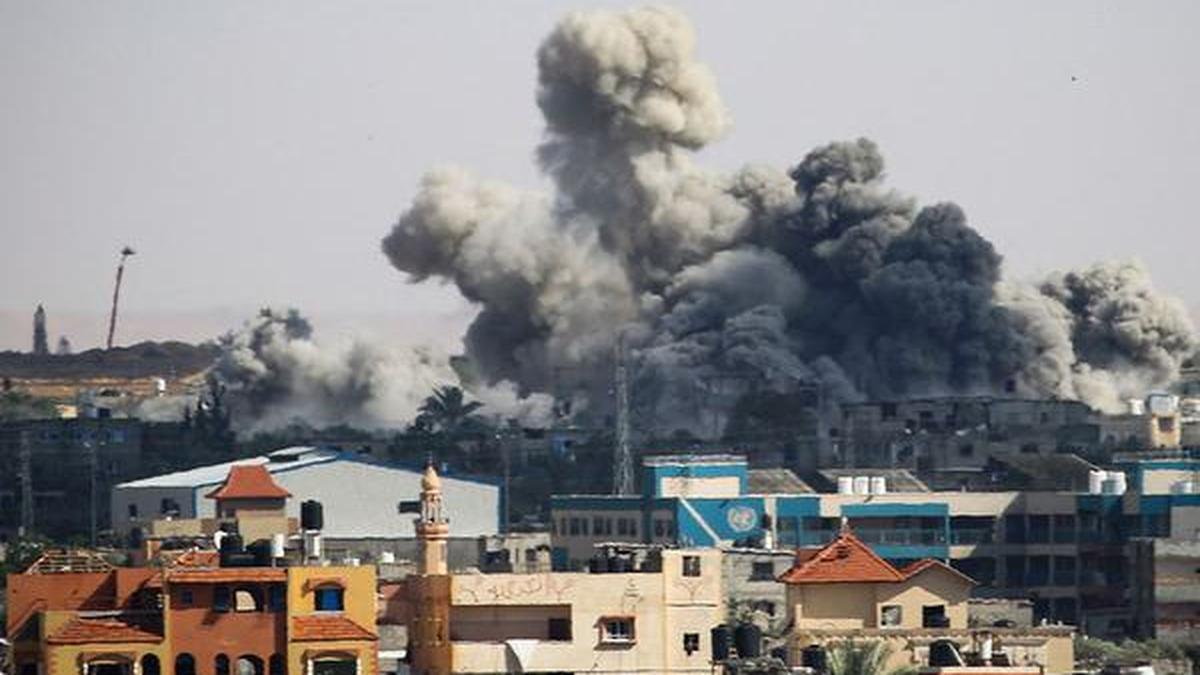
Israel’s ‘limited’ military operation in Rafah | Explained
The Hindu
Understanding how a potential ceasefire concluded in the Israeli military invading Rafah, and seizing the Rafah border crossing in the Gaza Strip - The Hindu explains.
The story so far: Israel advancing with a long-anticipated ground invasion of Rafah and seizing control of the Gaza side of the border crossing with Egypt on Tuesday, shortly after Hamas announced its acceptance of a ceasefire proposal brokered by Egypt and Qatar, has cast a shadow on the prospects of halting the war, which has claimed the lives of over 34,700 people so far.
Israeli tanks moved into the southern part of the city overnight, while warplanes bombed areas near the crucial Rafah border crossing, killing at least 23 Palestinians and injuring several others. The invasion, described by the U.S. as a “limited operation,” unfolded a day after the Israeli military ordered over a million people sheltering in Rafah to evacuate parts of the southern Gaza Strip city and relocate to an “expanded humanitarian zone” near Khan Younis, in preparation for an assault to “eradicate” Hamas.
Explained | How bad is the humanitarian crisis in Gaza?
Israel ordered the Rafah evacuation after four of its soldiers were killed in a rocket attack claimed by the Hamas armed wing near Rafah on May 5. The evacuation order prompted widespread concern about the potential ramifications for the millions of displaced Palestinians camping there.
The U.S. cautioned PM Benjamin Netanyahu against launching a southern Gaza offensive. Terming the impending invasion as a “red line” for his administration, President Joe Biden said further military action risked more casualties and devastation. Further, in a telephonic conversation with the Israeli PM, the U.S. President again highlighted the necessity of a ceasefire with Hamas to protect Israeli hostages and emphasised it as the best course of action.
Human rights groups and aid agencies also warned that an Israeli incursion could result in dire consequences, potentially leading to a “bloodbath.”
Against the backdrop of an imminent all-out military assault on Rafah, Hamas leader Ismail Haniyeh announced that the group accepted a ceasefire proposal mediated by Qatar and Egypt. Israel must decide whether it accepts or obstructs a truce, a Hamas official said. The ball is now in Israel’s court, the official told AFP.











